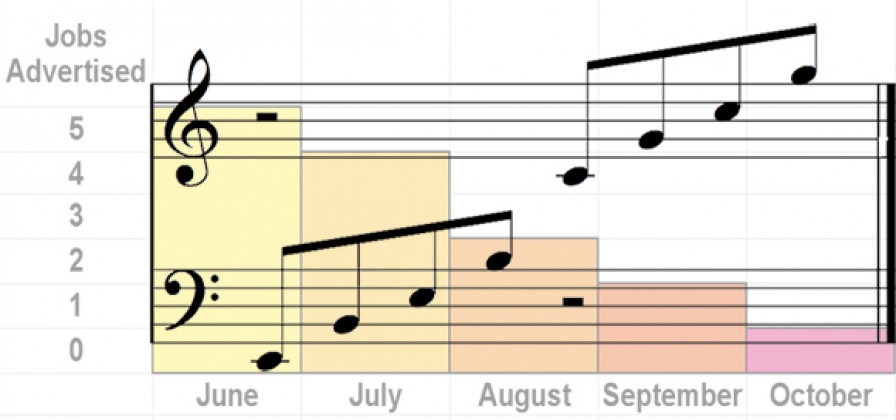Creating The Next Step

Redundancy and organisational restructures can happen to anyone and it’s not a good feeling to suddenly find yourself out of work. Paul Weston offers some suggestions on how to use your creativity to take matters back into your own hands.
Organisations not hiring, redundancies rising and high application rates for very few jobs means that I get many more calls and emails from people looking for work. Changes in the music education landscape mean that many of the traditional routes into employment no longer exist. A new landscape requires us to ask ourselves different questions, especially if people are saying no to the questions we ask. In the old landscape we would send out CVs, apply for jobs and be waiting for someone else to call. Now we have to work on the assumption that this will never happen.
We are, by nature, creative people and we create because that’s what we do. When people stop buying our creativity we don’t stop singing, writing or performing.
It is this creative approach that is the most useful skill we have and can be used to create work for ourselves. A fresh look at what is really happening in our area and what larger organisations are doing presents creative people with opportunities that exist in the gaps between them. Below I have made a list of actions and suggestions to help identify, generate and develop new ideas for work. New ways of thinking require an open mind so remember the words of Mr Henry Ford “Whether you think you can, or you think you can't--you're right”.
You and your new landscape.
- Make a list of all of the places that young people go to in the area that do not have music activities.Youth clubs, Arts organisations, schools, venues, etc
- Make a list of all of the places in the area that could safely be used to make music with young people.E.g. Venues, village halls, schools, community centres, church halls etc
- Make a list of all people who work with young people who are not musical and might like to have you come in and deliver a session or two.Youth workers, teachers, nurseries and playgroups, kids activity centres, after school clubs.
- Make a list of all types of music activity you could lead
Once you have gathered this information
Find out what local larger music education providers are doing and where. Make a list of where the biggest gaps are for this type of provision based on all of the information previously gathered. The Youth Music Network has a map of activity in your area. There are opportunities that an individual can take advantage of that would cost an organisation a lot more to deliver. Ask your local government arts officer if there are any gaps in music provision in your area. Have a look at some of the projects on the Youth Music Network and ask yourself “could I do that?” Ask yourself honestly what skills you lack to be able to achieve these things and start looking for the training to give you those skills.
The Youth Music Network has details of many different training opportunities.
Once you have an idea what you want to do.
Find someone from outside of the area (that won’t be threatened by competition) doing similar work, tell them you’ve heard how good their project is and ask if you can observe them. I’ve never known anyone say no. Most people are usually very flattered to be asked and be recognised for their work. Best to learn from their mistakes and form their best practice.
Develop your idea using the Music Education Code of Practice.
This is a great, simple framework for planning a successful project. Ask yourself and others “what do I need to do to satisfy these criteria?
• Be well prepared and organised • Be safe and responsible • Have appropriate music skills • Work well with people • Evaluate and reflect on their work • Commit to professional development
Click on the link to learn more about the code of practice
Then get started
Recent research has shown that “employers do not always find qualifications and training to be a reliable indicator of a Music Leader’s quality. They rely predominantly on word-of-mouth to find Music Leaders”. So how do you break into a new area of work?
Depending on your time and resources you could start of as no profit or voluntary until people recognise your worth or until they can’t do without you. If you are not working anyway then you will be investing in your future. Many of enquiries I get as a music leader come from things I did years ago. People do not even need to know that you are not earning. Surely it’s better to be seen as a working music leader than an out of work music leader. People won’t know who you are and what you can do if they don’t see or hear about you out there doing it. For instance, if you can sing and play a musical instrument then, with training, you could start offering to run early years music sessions within playgroups and nurseries.
If you have children yourself then offer to go into the school and perform in assembly. Or get your child to take you in for show and tell.
Just because no one else is doing it doesn’t always mean it’s not possible. Some research, a good idea and an informed approach could be the start of something that people have been waiting for.
